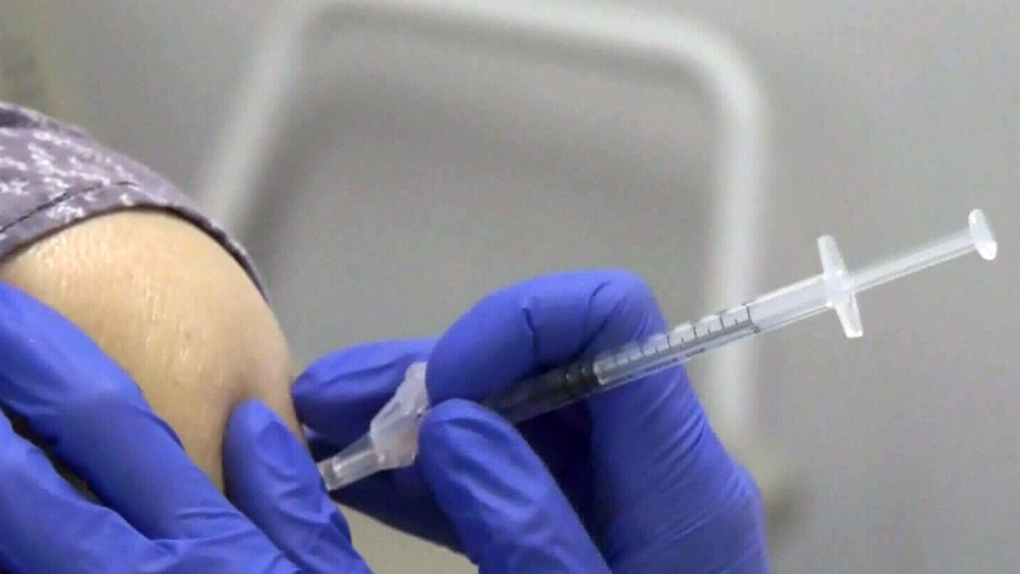Vaccines are safe and not 'experimental', writes panel of Alberta health experts

As the province continues to struggle with the rising number of cases during COVID-19's fourth wave, health officials are stepping up to a new challenge – one based on misinformation spread on social and digital media platforms.
In a letter published last week, a panel of physicians with Alberta Health Services (AHS) addressed a number of the questions about the COVID-19 vaccine.
Some of it included information about vaccine safety and effectiveness, as well as their ability to protect Albertans from infection.
It also mentioned how much pressure Alberta's hospitals were from unvaccinated patients in the ICU, so experts hoped the information would help answer some lingering questions.
"There has been a tidal wave of misinformation and the people responsible for it are causing confusion, as well as mistrust and uncertainty with public health responses," the letter said.
"They are prolonging the pandemic and preventing access to our health system for some very ill patients."
The document went on to say, through scientific studies and conclusive evidence, that COVID-19 vaccines are safe and full protection can only happen when community transmission of the virus drops off.
"Evidence shows fully vaccinated persons are less likely than unvaccinated persons to acquire COVID-19 infection (including the delta variant), and by preventing infection, vaccines also prevent transmission to others."
The shot is safe, the letter said, adding that "only a tiny fraction" of the millions of doses administered have led to adverse effects.
"Furthermore, of those reports of adverse events, even fewer were considered serious, representing only 0.008 per cent of all doses administered."
Long-term studies of the COVID-19 vaccine don't exist at present but AHS said, after looking at the effects of other vaccines used by physicians, there is "no reason" to believe any COVID-19 vaccine would have a detrimental effect years from now.
Vaccines aren't experimental either, the letter said.
"Yes, they were developed rapidly but used science that has been around for decades. Extremely robust data from clinical trials and real-world use in many millions of people show that vaccination is safe, and offers good protection against becoming infected and excellent protection against serious illness or death from COVID-19."

'DURATION OF ANY PROTECTION IS NOT CLEAR'
While the physicians who wrote the letter did agree there was such a thing as "acquired immunity" to COVID-19 through infection, it's a risky gamble for thousands of Canadians to take.
"This acquired immunity comes with a huge risk as roughly 20,000 Canadians will die from the disease for every 1 million infected. Many others will experience life-changing complications such as prolonged pneumonia, lung damage and blood clots."
Furthermore, while previous infection provides 85 per cent protection, AHS says, it's not known how long that would last.
"The duration of any protection is not clear at this time. But we do know that vaccination after an infection boosts immunity and offers more protection against the delta variant. There is also evidence that people who had a previous infection are twice as likely to be reinfected with the delta variant compared to those who had a previous infection plus a dose of vaccine."
The list of physicians signing onto the letter were:
- Dr. Scott McLeod - registrar, College of Physicians and Surgeons of Alberta;
- Dr. Louis Hugo Francescutti, president, College of Physicians and Surgeons of Alberta;
- Dr. Verna Yiu - president and chief executive officer, AHS;
- Dr. Francois Belanger – vice-president quality and chief medical officer, AHS;
- Dr. Brenda Hemmelgarn – dean, faculty of medicine and dentistry, University of Alberta;
- Dr. Jon Meddings – dean, Cumming School of Medicine, University of Calgary and;
- Dr. Vesta Michelle Warren, president, Alberta Medical Association.
Alberta Health says more than 6 million doses of COVID-19 vaccine have been administered in the province.
It adds that 2.8 million Albertans have received two doses.
CTVNews.ca Top Stories

Former Liberal cabinet minister Marco Mendicino won't seek re-election
Marco Mendicino, a prominent Toronto member of Parliament and former minister of public safety and immigration, won't run in the next federal election, CTV News has learned.
Pickering pausing in-person meeting due to alt-right threats, mayor says
Pickering Mayor Kevin Ashe says the city is pausing all in-person meetings, moving them to a virtual format, for the time being due to “alt-right” threats.
Athabasca 'chop shop' bust yields millions in stolen vehicles, heavy equipment: RCMP
RCMP have made what they call a "major recovery" of stolen property in Athabasca.
U.S. soldier shot self in head before Cybertruck exploded outside Trump's Las Vegas hotel, officials say
The highly decorated U.S. army soldier inside a Tesla Cybertruck packed with fireworks that exploded outside Trump International Hotel in Las Vegas shot himself in the head just before detonation, authorities said Thursday.
Toys "R" Us Canada closing 5 stores, expand HMV and add play spaces to some shops
Toys 'R' Us Canada says it is closing five Ontario stores and revamping several others as it works to 'optimize' its business.
Wayne Osmond, singer and guitarist for The Osmonds, is dead at 73
Wayne Osmond, a singer, guitarist and founding member of the million-selling family act The Osmonds, who were known for such 1970s teen hits as 'One Bad Apple,' 'Yo-Yo' and 'Down By the Lazy River,' has died. He was 73.
Grieving orca mother Tahlequah carries dead baby for the second time
The famous mother orca who made waves around the world for carrying her dead calf for 17 days has suffered another tragic loss.
2 dead, 18 injured in small plane crash in Southern California
Two people were killed and 18 injured when a small plane crashed through the rooftop of a commercial building in Southern California on Thursday, police said.
'Premeditated and an evil act': FBI updates on investigation into New Orleans 'act of terrorism'
The FBI now says that the pickup truck driver responsible for a deadly rampage in New Orleans acted alone.

































